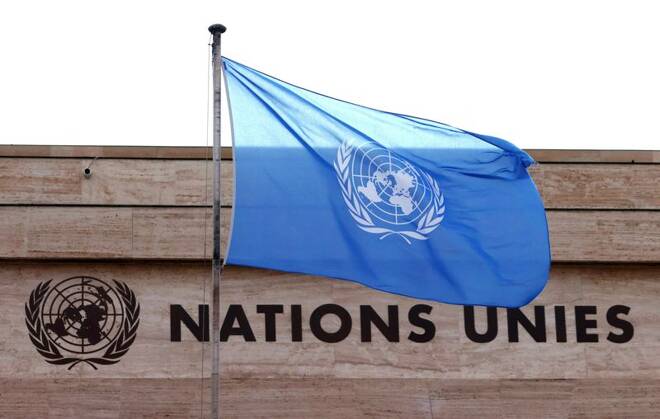Advertisement
Advertisement
Some Russian abuses in Ukraine may be crimes against humanity – UN inquiry finds
By:
GENEVA (Reuters) - Russia has committed wide-ranging war crimes in Ukraine such as wilful killings, torture and the deportation of children, a U.N.-mandated investigative body said in a report published on Thursday.
By Gabrielle Tétrault-Farber and Emma Farge
GENEVA (Reuters) -Russia has committed wide-ranging war crimes in Ukraine such as wilful killings and torture, a U.N.-mandated investigative body said on Thursday, in some cases making children watch loved ones being raped and detaining others alongside dead bodies.
The alleged crimes, including the deportation of children, were detailed in a report by the Independent International Commission of Inquiry on Ukraine, which said some acts may amount to crimes against humanity.
At her weekly press briefing, Russian Foreign Ministry spokeswoman Maria Zakharova told reporters that Moscow regularly heard accusations like these.
She added that if those behind such reports supported objectivity “then we are ready to analyse specific cases, answer questions, provide data, statistics and facts. But if they are biased, if they represent only one point of view … then there is no use responding to these reports.”
Russia denies committing atrocities or attacking civilians in Ukraine.
Based on more than 500 interviews as well as satellite images and visits to detention sites and graves, the report comes as the International Criminal Court in The Hague is expected to seek the arrest of Russian officials for forcibly deporting children from Ukraine and attacking civilian infrastructure.
It said Russian forces carried out “indiscriminate and disproportionate” attacks on Ukraine and called for the perpetrators to be held accountable.
“The ongoing armed conflict in Ukraine has had devastating effects at various levels,” Erik Møse, chair of the commission, told a press briefing. “Human losses and the general disregard for the life of civilians…are shocking.”
The report said at least 13 waves of Russian attacks since October on Ukraine’s energy-related infrastructure as well as its use of torture “may amount to crimes against humanity.”
It found that some 16,000 children have been unlawfully transferred and deported from Ukraine, citing a Ukraine government figure. Russia denies the charge, saying it has evacuated people voluntarily from Ukraine.
Other children were forced to watch their loved ones raped or, in one instance, detained in a school basement alongside the bodies of the deceased, the report said.
Victims in Russian detention facilities were subject to electric shocks with a military phone – a treatment known as a “call to (Russian President Vladimir) Putin” – or hung from the ceiling in a “parrot position”, the report said.
Genocide?
The commission’s 18-page report will be presented to the Geneva Human Rights Council on Monday. Countries at the council, the only body made up of governments to protect human rights worldwide, aims to extend and deepen the commission’s mandate.
Sometimes, the council’s probes lead to prosecutions in international courts. The commission said it is working on a list of possible perpetrators that would be passed onto U.N. authorities.
Asked whether Russia’s acts might amount to genocide, as Ukraine believes, Møse said it had not yet found such evidence but would continue to follow up.
Ukraine, which has called for the creation of a special tribunal to prosecute Russia’s political and military leadership with aggression over the invasion, has said the commission was essential to ensure Russia would be held accountable.
The commission found reasonable grounds to conclude that the Ukraine invasion qualifies as an act of aggression.
The report also found that Ukraine forces had committed a “small number of violations” including what appeared to be indiscriminate attacks and torture of prisoners of war. The Ukrainian presidency was not immediately available for comment.
(Reporting by Gabrielle Tétrault-Farber and Emma Farge; Additional reporting by Filipp Lebedev in Tbilisi; Editing by Anthony Deutsch and Raissa Kasolowsky, Editing by William Maclean)
About the Author
Reuterscontributor
Reuters, the news and media division of Thomson Reuters, is the world’s largest international multimedia news provider reaching more than one billion people every day. Reuters provides trusted business, financial, national, and international news to professionals via Thomson Reuters desktops, the world's media organizations, and directly to consumers at Reuters.com and via Reuters TV. Learn more about Thomson Reuters products:
Advertisement
